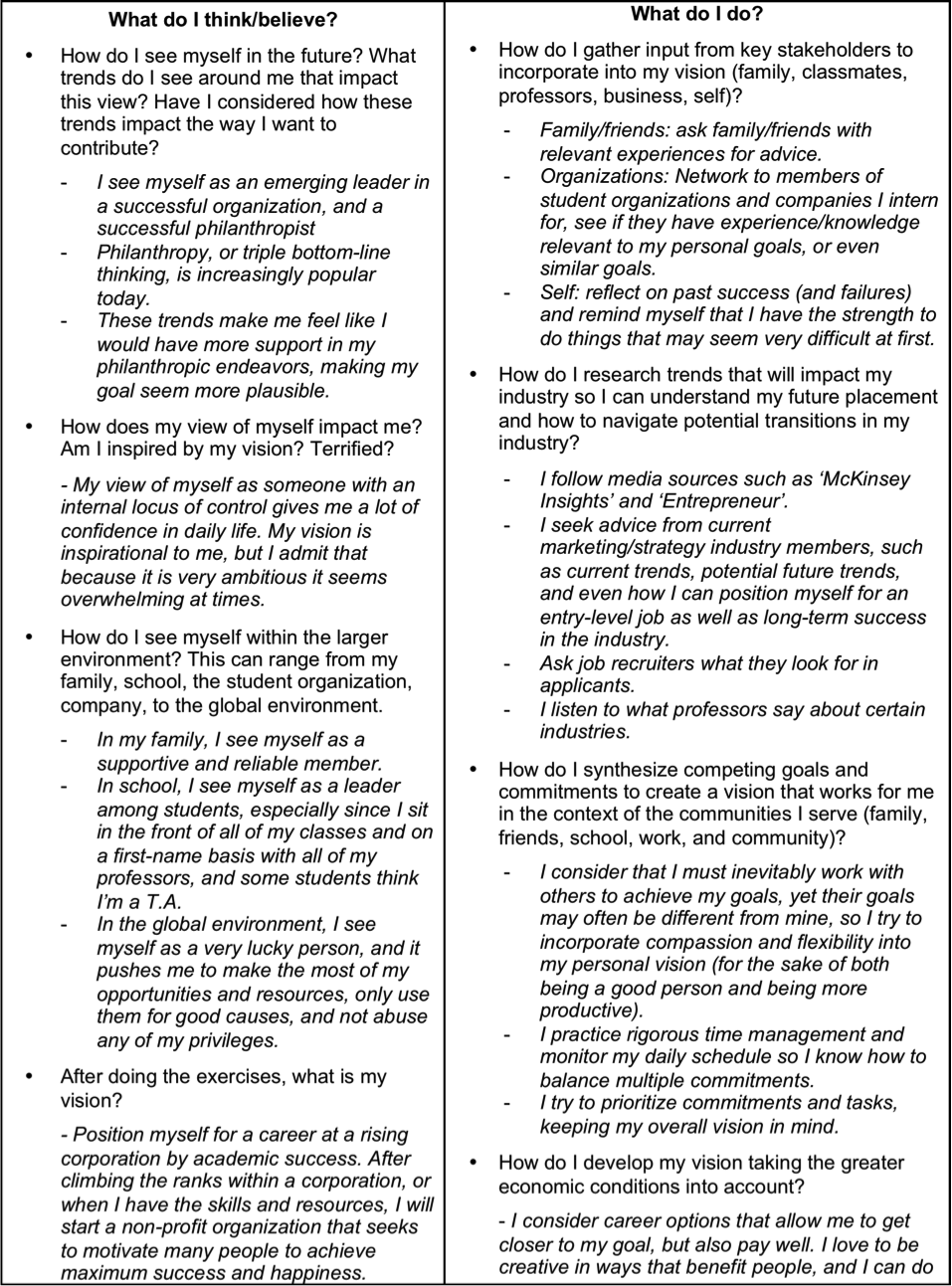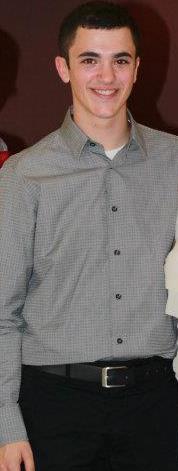Reflecting on Personal Vision – Eric’s Story
 I’m Eric Philippou, and I’m writing this blog as part of my college internship at ILI. During the past three posts, I completed exercises to help me define my vision and values.
I’m Eric Philippou, and I’m writing this blog as part of my college internship at ILI. During the past three posts, I completed exercises to help me define my vision and values.
Reflection Questions
After each of the six steps in the innovative leadership development process, I’ll provide some helpful reflection questions. If you can answer all of these questions in detail, you’ll develop a firm understanding of your vision, and your action plan can be implemented almost immediately. The “What do I think/believe?” section refers to your intentions, and the “What do I do?” section refers to your actual behavior. The “What do we believe?” section refers to your group’s intentions, and the “How do we do this?” section refers to your group’s actions and processes. Think of any organized group you belong to (student club, sports team, fantasy football league) and use that to answer the last two sections I mentioned. If you’re not in an organized group, join one and save those reflection questions for after you’ve joined. Remember – even as a new group member and not a leader, you can still display leadership by influencing change. In my answers, the organization I refer to is my varsity fencing team.
This marks the end of the first step in becoming an innovative leader as a college student. The next post will analyze your strengths and situation in step two. I’ll provide you with some personal assessments to take, this way you get a firm understanding of your personality type, special skills, how you can work best in a group setting, and much more.
photo credit: OSU Athletics, Ohio State University



